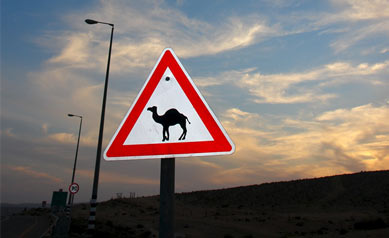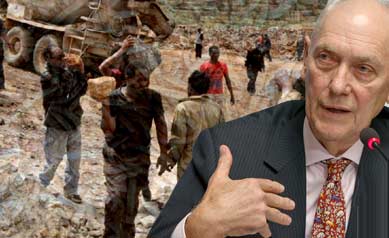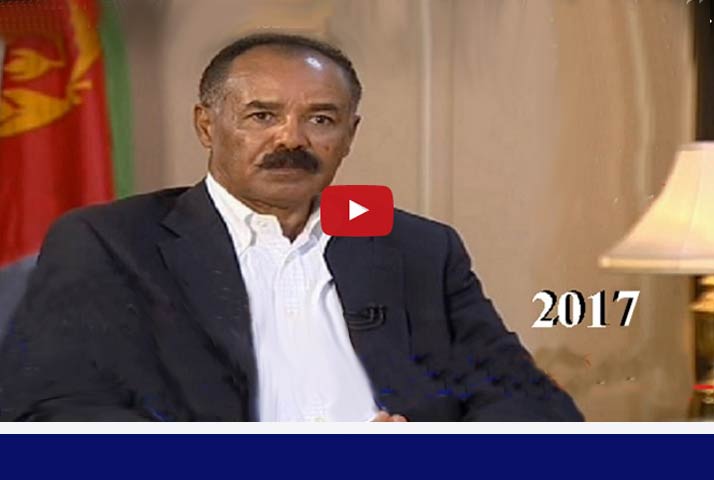When Eritreans Went To The Polls In 1997

Everybody is going to the polls, let’s go to ours. Well, it is a different kind of poll our is an opinion poll and not voting poll. And it requires a time machine…that takes us 18 years back. And it is not by the millions but by the dozens. But it may give us a clue as why we are not having elections, like our neighbors. Maybe: you decide. With that out of the way… In late 1997, I conducted a 20-question political survey of an Eritrean virtual community which subscribed to a US-based mail list called “Dehai.” Dehai.org, which is still around, was then a member-based list and, at the time I conducted the survey, its membership was reportedly 1,100 individuals. As with all discussion forums, less than 10% were active members; the rest were passive readers. Still, for two months, I harangued readers to participate in the survey and I received 59 responses. (N=1,100; n=59 or 5.36%, which is considered a decent conversion, if one assumes there is no self-selecting bias.) I published the survey in Dehai on January 12, 1998. Four months later (May 12, 1998), the Eritrea-Ethiopia border broke out. I am republishing it at awate.com to give our readers our zeitgeist, “the way we were” almost 18 years ago. Who is “we”? Full disclosure: Dehai was then, as it is now, pro-government and pro-Eritreans who use English as their preferred lingua-franca.
Numbers shown in parenthesis are the percentage of respondents who chose the answer from multiple-choice question. If the numbers don’t add up to 100% it means that either some respondents chose multiple options (when it adds up to more than 100%) or skipped it entirely (when the answer adds up to less than 100%.) Here we go: back to the Wayback Machine. (zemen eni eni…)
1. The economic model Eritrea should pursue is that of:
(a) East Asian “Tigers”: Singapore/Taiwan/China. (29%)
(b) Scandinavian countries: Sweden/Denmark. (12%)
(c) USA. (4%)
(d) none of the above. (56%)
2. Next to peace, the most important factor in the economic development of Eritrea is:
(a) human resources development. (38%)
(b) massive capital infusion. (4%)
(c) development of infrastructure. (37%)
(d) prudent and accountable economic managers. (10%)
(e) stability. (12%)
3. The Eritrean macro-economic policy should be one where the government:
(a) competes directly with the private sector. (16%)
(b) forms partnership with the private sector, offering help where needed. (53%)
(c) sets goals then takes a “hands-off” approach allowing industries to “sink or swim”.(30%)
4. Given limited resources, Eritrea’s goal of building an export-based economy can best be realized by:
(a) creating an environment of cheap labor, generous tax policy and land lease that is inviting to foreign corporations. (35%)
(b) investing heavily in the Eritrean agricultural sector. (33%)
(c) investing heavily in the Eritrean industrial sector. (24%)
5. The biggest foreign threat to Eritrea is:
(a) religious fundamentalism. (9%)
(b) permissive Western culture. (6%)
(c) unstable neighborhood. (72%)
(d) misguided Eritreans who live outside Eritrea. (6%)
6. The biggest internal threat to Eritrea is/will be:
(a) Islamic Jihad group. (19%)
(b) ELF and ELF-offshoot groups. (2%)
(c) ethnic/religious rivalry. (34%)
(d) income inequity. (30%)
7. The most important lesson Eritrea could learn from Africa is that:
(a) one-party governments eventually become dictatorial. (49%)
(b) importing ideas wholesale from the West leads to disaster. (20%)
(c) creation of multi-parties in the name of pluralism leads to chaos. (21%)
(d) whatever you do, don’t listen to the World Bank and the IMF. (5%)
8. A national, secular political party that challenges the PFDJ:
(a) should be established in Eritrea. (83%)
(b) should not be established in Eritrea. (14%)
9. Allowing the establishment of national and secular opposition parties in Eritrea now would:
(a) ensure a quicker transition to full-fledged democracy and should be pursued. (43%)
(b) result in formation of religious/ethnic based parties and should be delayed. (53%)
10. A political party that challenges the PFDJ will be established in Eritrea within:
(a) less than 5 years. (14%)
(b) 5 – 10 years. (44%)
(c) 10 – 20 years. (28%)
(d) More than 20 years. (9%)
11. The Eritrean press (print media) should be:
(a) Independent, Western-style. (43%)
(b) Independent, within government-defined parameters. (46%)
(c) Semi-independent but monitored closed by the appropriate government agency. (28%)
(d) Just like the electronic media: owned by a government agency. (9%)
12. With respect to the 2% of net income tax [Rehabilitation Tax] requirement:
(a) I meet my obligation primarily because it is my duty. (50%)
(b) I meet my obligation primarily because I require services of the government. (14%)
(c) I don’t meet my obligation primarily because I forget. (16%)
(d) I don’t meet my obligation primarily because of my principle. (9%)
13. To help reach a goal of gender-equity, the Eritrean government should:
(a) always pursue gender-neutral policies. (51%)
(b) take corrective measures to compensate for opportunities denied to women in the past. (29%)
(c) take corrective measures but only for a finite period of time. (21%)
14. This policy of compensating for previous inequity should be extended to other groups if they can demonstrate that opportunities were denied to them because of the group they belong to:
(a) Strongly agree. (18%)
(b) Agree. (31%)
(c) Disagree. (29%)
(d) Strongly disagree. (24%)
15. It is my opinion that as long as [Hassan] Al-Turabi [then considered the power behind the curtain in Sudan] is in power, war with Sudan is, sooner or later, inevitable:
(a) strongly agree (10%)
(b) agree (29%)
(d) disagree (53%)
(e) strongly disagree (9%)
16. Of the people I know who visited Eritrea, most report that corruption in Eritrea is:
(a) non-existent (29%)
(b) minimal. (56%)
(c) moderate. (9%)
(d) high. (7%)
17. The Eritrean government has taken steps against Jehovah’s Witnesses. The government says that this was necessary because right of worship should not override duties of citizenship. The Jehovah’s Witnesses say that their religion prohibits them from engaging in some of the duties enumerated. Overall:
(a) I strongly agree with the steps taken by the government. (27%)
(b) I somewhat agree. (38%)
(c) I disagree. (19%)
(d) I strongly disagree with the steps taken by the government. (14%)
18. The Eritrean Justice Department admits that some Eritrean citizens are in jail without due process. The government says that asking the government to implement a lengthy due process without first developing the infrastructure of justice system is unrealistic. Critics say that the right to due process should not be conditional nor compromised. Overall:
(a) I agree with the decision taken by the government because I recognize it a temporary measure. (29%)
(b) I agree with the decision taken by the government because I have faith in the government’s integrity. (12%)
(c) I disagree with the decision taken by the government because all governments are fallible. (59%)
19. Of the people I know who visited Eritrea, most report that Eritreans who live in Eritrea are:
(a) very happy with the Eritrean government. (17%)
(b) happy with the Eritrean government. (60%)
(c) unhappy with the Eritrean government. (19%)
(d) very unhappy with the Eritrean government. (4%)
20. I agree with the policies and decisions of our government:
(a) always. (0%)
(b) almost always. (60%)
(c) sometimes. (33%)
(d) almost never. (7%)
(e) never. (0%)
End of survey.
-//-




Awate Forum